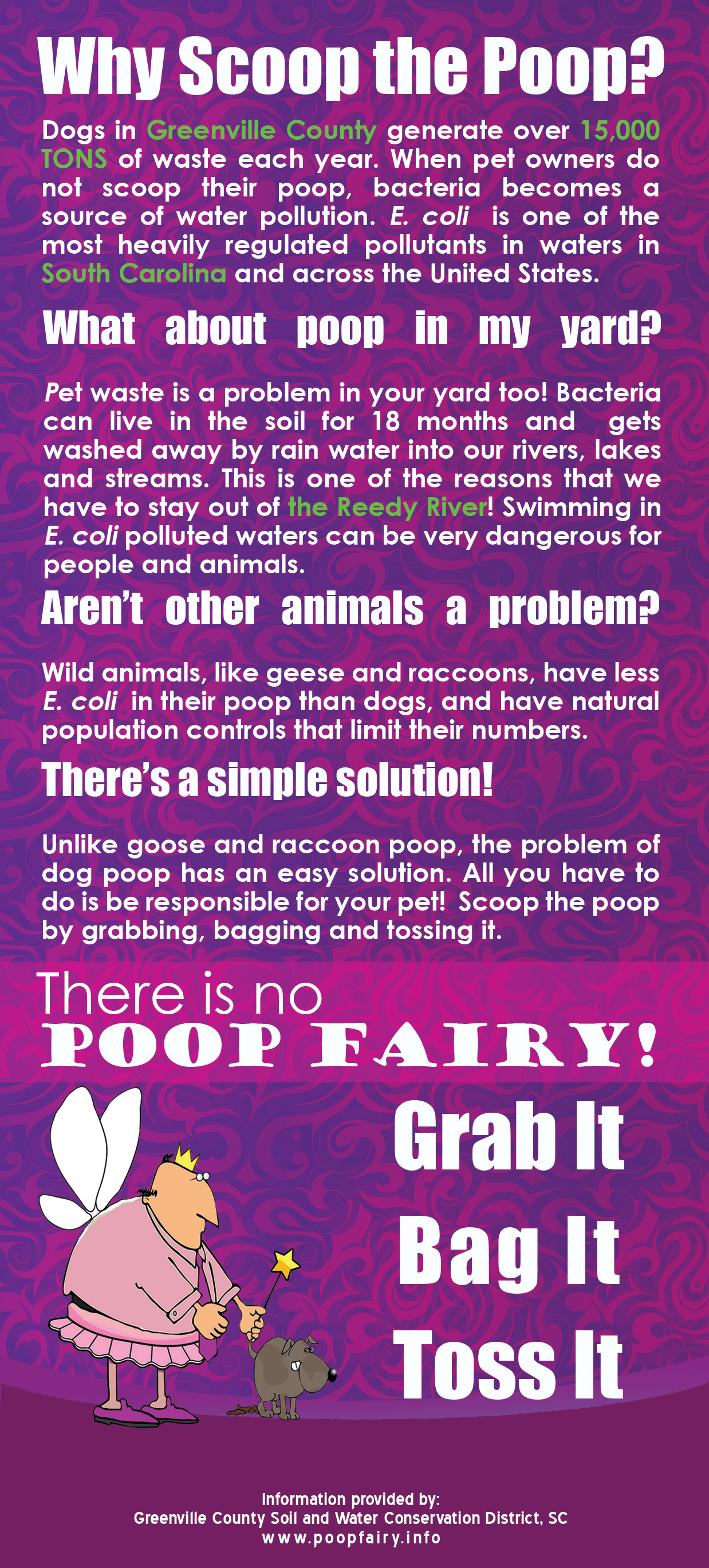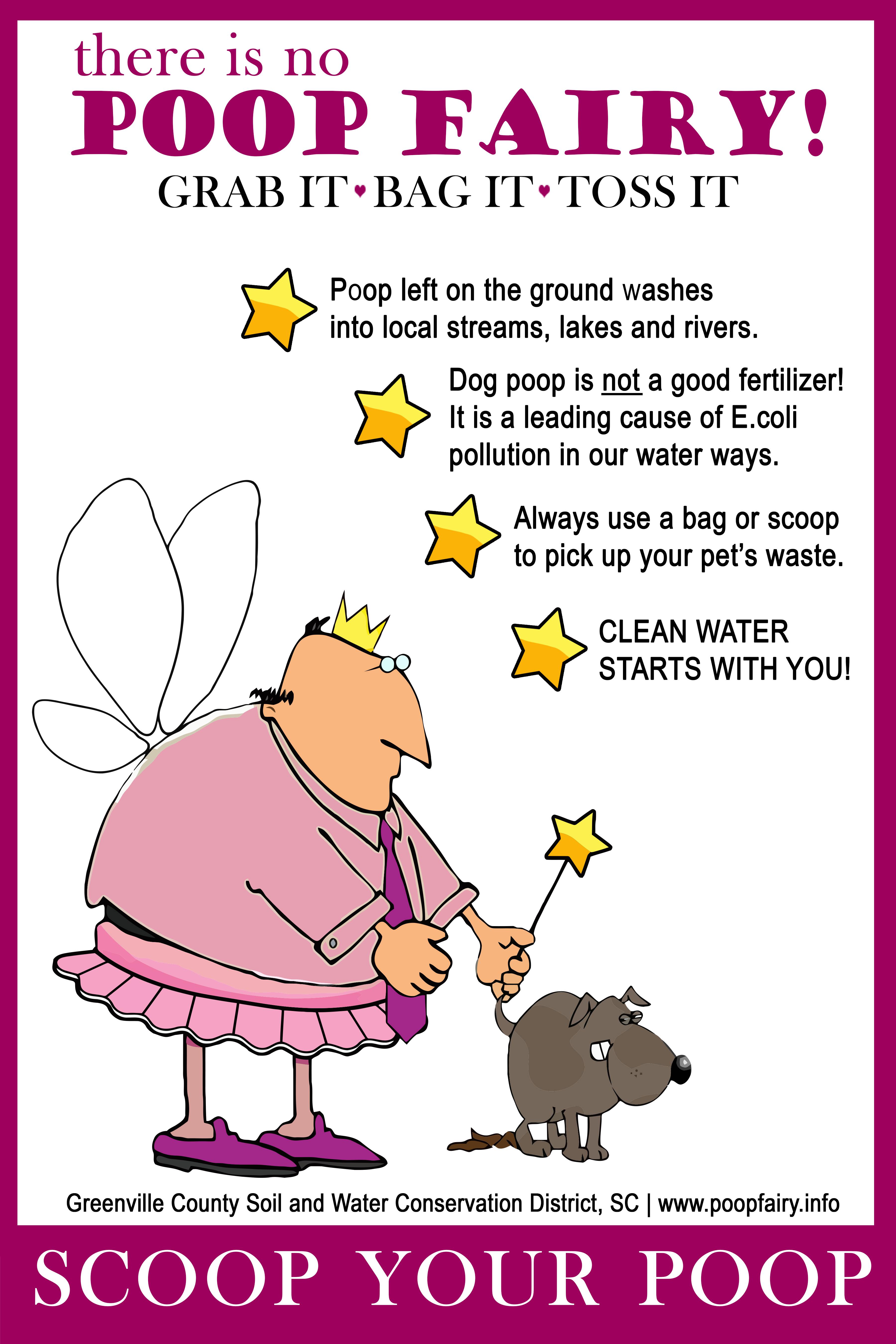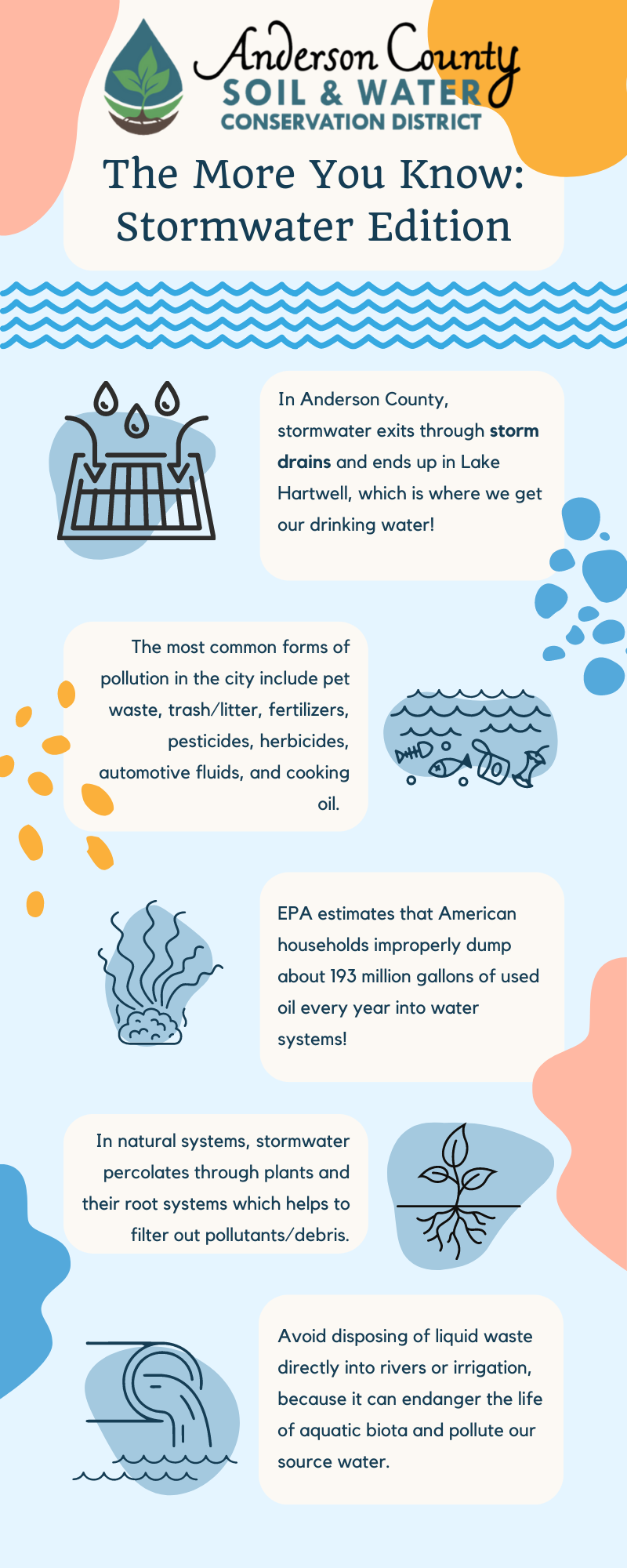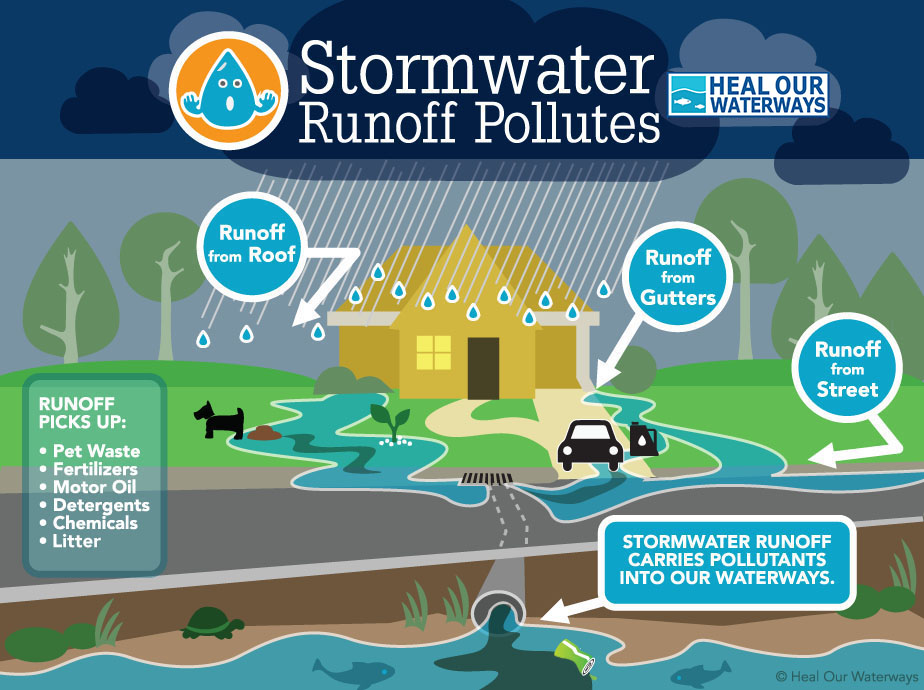
What is stormwater?

There is no poop Fairy!
Here in Anderson County, we like to keep our waterways clean! We love our rivers, lakes and streams! Pet waste is a huge contributing factor to pollution in water ways! In partnership with Greenville Soil and Water, we are promoting the "There Is No Poop Fairy" movement in Anderson County!
Here's what Greenville Soil and Water has to say about poop:
The Problem with Poop
We all know that pet waste left unattended is just plain gross. But did you know that unscooped poop causes huge problems for waterways like rivers, lakes, and streams? The EPA classifies dog waste as non-point source pollution, along with herbicides and insecticides, oil, grease, and toxic chemicals. Not only is pet waste unsightly and smelly, but it contains an abundance of bacteria, parasites, worms, and more that wash into local waterways and pollute our natural resources. Pet waste can also make people, pets, and wildlife very sick by acting as a vector for disease transmission. It even attracts unwanted attention from pests.
E. coli and Other Dangers
One of the biggest risks associated with pet waste is E. coli bacteria. Dog poop can contain 23 million E. coli bacteria per gram of waste, and the average pile contains nearly 3 billion E. coli bacteria! Pet waste also hosts giardia, salmonella, parvo, worms, viruses, parasites, and more. These can cause fever, vomiting, diarrhea, dehydration, and other unpleasant symptoms. Even after solids are washed away, these unwanted guests can stick around on the ground for years!
Waste in the Water
If left unattended, pet waste and the associated contaminants are picked up by stormwater when it rains. Stormwater (and the pollutants it picks up along the way) is washed down storm drains, where it travels untreated and unfiltered into Greenville’s waterways. In areas that lack storm drains, stormwater flows directly to nearby waterways.
These harmful entities aren’t the only trouble pet waste brings to waterways. Pet waste that decomposes in water is a quadruple threat. Decomposing waste releases excess nutrients into the water, which cause algal blooms (eutrophication). Algae blooms can be toxic to humans, pets, and wildlife as well as make recreation, such as boating, swimming, or fishing, dangerous for humans. Algae can also be harmful because it feeds on and depletes oxygen in the water, meaning there is less oxygen available for the aquatic species that depend on it. Oxygen is also consumed during the decomposition of pet waste, thus removing even more oxygen from the water. Decomposing waste also releases ammonia, which damages the health of the aquatic system.
Interested in getting a Poop Fairy sign for your personal yard? Contact Anderson County Soil and Water District or visit Greenville County Soil and Water's website!


